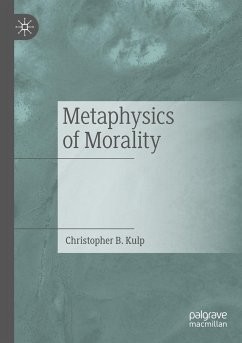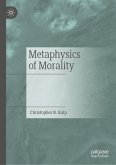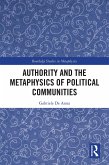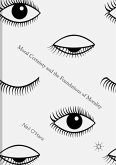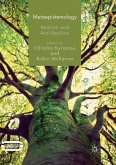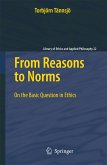This is a book on metaethics-in particular, an inquiry into the metaphysical foundations of morality. After carefully exploring the metaphysical commitments, or lack thereof, of the leading versions of moral anti-realism, Kulp develops a new and in-depth theory of moral realism. Starting with the firm recognition of the importance of our common sense belief that we possess a great deal of moral knowledge-that, for example, some acts are objectively right and some objectively wrong-the book goes on to examine the metaphysical grounds of various skeptical responses to this perspective. In great part, the book is devoted to developing a version of realist metaethics: specifically, developing in detail realist theories of moral truth, moral facts, and moral properties.Concluding with the rejection of prominent contemporary forms of moral anti-realism, Kulp presents a rigorous non-naturalistic theory of moral realism, and a vindication of the basic commitments of commonsensemoral thought.
"Kulp's work is commendable and should be read by all who are interested in an accessible exposition of moral non-naturalism. For the theist there is much to agree with in his work. It is clear, well written, and generally well argued. His reviews of the various non-realist metaethical positions are also very useful even though generally brief. ... All this taken into consideration, theistic metaethical thinkers should fully engage his work." (Dale Kratt, moralapologetics.com, March-April, 2022)
"Kulp makes his case for the validity of commonsense moral understanding by presenting a nonnaturalistic theory of moral realism with clarity and vigor. With light, humorous, and provocative examples, the book exhibits his excellent ability to work out in technical detail the metaphysical corollaries of the central claim that ordinary moral thinking is valid." (Kayhan A. Özaykal, The Review of Metaphysics, Vol. 73 (292), 2020)
"Kulp makes his case for the validity of commonsense moral understanding by presenting a nonnaturalistic theory of moral realism with clarity and vigor. With light, humorous, and provocative examples, the book exhibits his excellent ability to work out in technical detail the metaphysical corollaries of the central claim that ordinary moral thinking is valid." (Kayhan A. Özaykal, The Review of Metaphysics, Vol. 73 (292), 2020)

